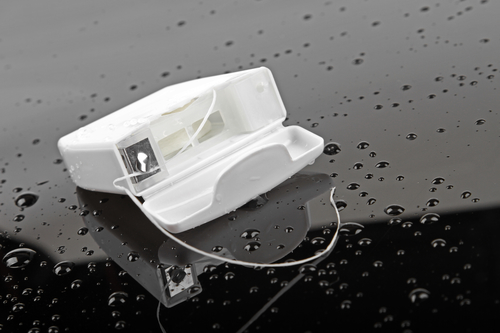
You’re standing in front of the bathroom sink, staring at your new braces. You have your toothbrush in one hand and your floss in the other. But the standard way you clean your teeth just doesn’t feel so simple anymore. You stare at the toothbrush, then the floss, trying to figure out – how the heck are you going to get these around all the brackets and wires suddenly filling your mouth?
We’re here to help, and we’ve got good news – plenty of patients have made it through braces without cavities, and you could be next.
With some slightly modified brushing and flossing techniques, plus some special tools, you can kick your cleaning up a notch and keep both your braces and your teeth sparkling and clean. Keep reading for details on both brushing and flossing, and get in touch if you ever need more personalized advice.
How to Brush Your Teeth with Braces
We’ll cover brushing first, since it’s the more straightforward cleaning step for orthodontic patients (more on the dreaded flossing below). Your brushing doesn’t need to change too significantly, but you can use a slightly different brushing approach to make sure your teeth stay clean.
- Suggested brushing technique: Place the tips of your toothbrush bristles flat against your teeth, and use small, circular motions to clean them. Tilt the brush toward the gum line to clean the areas between braces and the gums, and use the same circular motions. When cleaning the chewing surfaces of the teeth, use a back-and-forth motion. And clean the inside surfaces of the teeth in the same way you cleaned the outside surfaces. Also make sure to get all of the tooth surfaces, especially the areas between wires & teeth, and brackets & gums (this is where food particles get trapped most often).
- Other brushing tips: Be sure to use a soft bristle toothbrush, or an electric toothbrush. Brush for 2 full minutes and be a little gentler than usual so that you can make sure you don’t damage brackets or wires. Also use a fluoride toothpaste to help protect and remineralize enamel. After eating, rinse out your mouth with water right away to dislodge any food particles, and then brush if you are able.
- Special tools: If you find yourself struggling to brush around your braces, ask Dr. Thomas about using an interdental toothbrush. This type of brush looks like a pipe cleaner and has bristles all the way around. This allows you to better access tiny, tight spaces within your braces. A water pick might also be helpful in dislodging food particles. These should both be used as aids alongside regular brushing and flossing. Dr. Thomas may also recommend a fluoride rinse to help you prevent decalcification and decay.
How to Floss Your Teeth with Braces
The biggest obstacle with flossing during braces is getting around wires. Brackets are one thing, but they’re relatively simple to clean around. Wires, on the other hand, seem to thwart your cleaning at every turn. But there are special tools that will help you clean beneath them.
- Suggested flossing technique: We suggest using a floss threader, which we will provide when you first get your braces on (if you lose yours, just ask for more at your next exam). This will help you reach around archwires. Feed one end of a piece of floss through the threader, and then pull the entire threader and the free end of the floss under your archwire. Grab each end of the floss and slide it up and down on either side of each tooth. Then, pull the piece out and repeat for the next area.
- Other flossing tips: Floss at least once per day. It’s usually best to floss before bed so that you can remove food particles and bacteria from your teeth so that they can’t contribute to plaque forming during the night.
- Special tools: It’s all about the floss threader!
What Can I Do to Check How Effective My Oral Hygiene Is?
There are special dyes available in some drugstores called disclosing tablets or disclosing solutions. These darken any plaque or food debris that is left in your mouth after brushing and flossing. Then, it’s easy to locate and scrub away any patches of plaque before they cause problems.
Oral hygiene is incredibly crucial during braces, because it helps you keep your orthodontic treatment on track. Plus, you avoid having your braces removed to reveal white spots on your enamel from decalcification. By staying healthy today, you prevent much bigger problems in the future.
If you ever need assistance with your oral hygiene, just get in touch for guidance from our staff.





